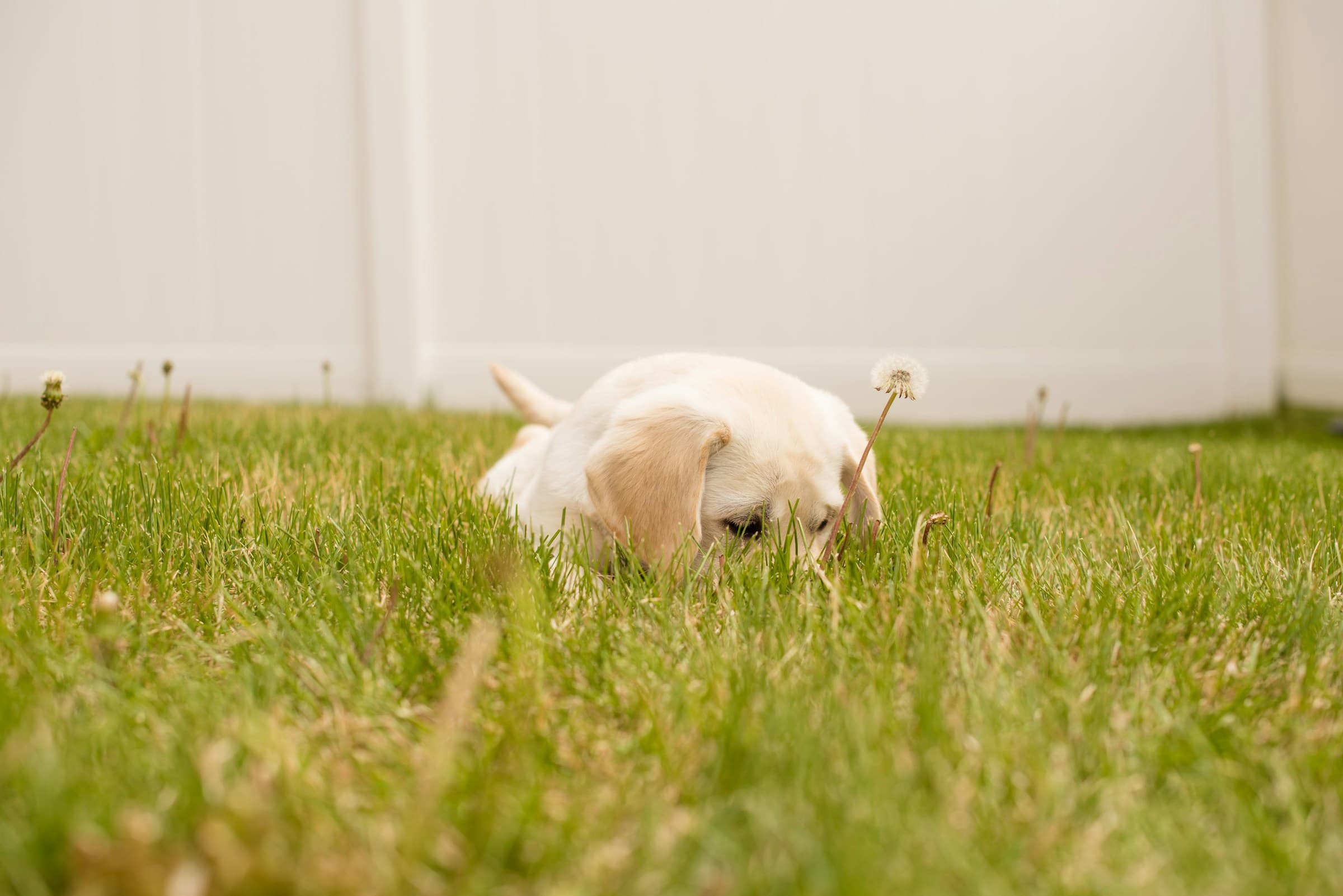Diarrhea is one of the most prevalent issues in small puppies. While it’s often harmless, prolonged diarrhea can be a sign of many underlying problems. In this article, we will take a deeper look at the signs and symptoms of diarrhea, as well as causes, kinds, and ways to manage it to keep your dog happy and healthy.
What Causes Diarrhea in Puppies?
There are three main factors that most often cause diarrhea:
Diet
The first and main reason why a puppy has diarrhea but still playful is food and diet changes. Most puppies experience diarrhea when they are introduced to new foods. Since their stomachs are small and delicate, they need gradual exposure to food to digest it properly.
Infections
Another cause of diarrhea in puppies is infections. These can be bacterial, viral, or parasitic. Aside from common bacterial and viral infections, many puppies struggle with worm infections leading to stomach issues.
Stress
One factor that gets ignored the most is stress. There are many changes the pet might be experiencing that cause your dog having diarrhea. For example, puppies are stressed when exposed to new environments. They can also experience stress when they are lonely or have significant routine changes.
Types of Puppy Diarrhea
Soft Stool
Irritation of the digestive lining is the main reason dogs have soft stools. While it might sound concerning, the symptoms clear up on their own.
Red Diarrhea (Diarrhea With Blood)
The most alarming sign of your dog having some health issues is red diarrhea. This is often caused by some underlying issues that cause diarrhea with blood. This requires urgent care from the vet.
Diarrhea With Mucus
The presence of mucus in the diarrhea suggests that there is inflammation of the intestinal tract. Some main causes of mucus in their stool are food sensitivities, allergens, or worms.
If this problem continues, call your local vet to assist with closer monitoring.
Diarrhea With Vomiting
Poor gut movements that include vomiting are more severe and may lead to the development of diarrhea-related dehydration. You can give your pet some electrolytes if your vet approves.
Yellow Diarrhea
Yellow diarrhea is most likely a sign of liver or gallbladder problems. Any prolonged diarrhea in dogs with a yellow color should be reported to the veterinarian for further examination.
Treating Puppy Diarrhea
One way to treat diarrhea in puppies is withholding food for at least 12 hours. This way, you enable their gut to heal and have some chance to recover. After doing that, you can slowly give them low-fiber foods. You should avoid giving them any spicy foods for at least several weeks to improve their digestion.
Ways to Help Prevent Puppy Diarrhea
Here are the measures on how to prevent puppy diarrhea in simple ways.
Ensure that the feeding, exercise, and rest time are well put in place with exact time throughout the day.
Your puppy should be taken to different places, and meet other people, or animals but this should be very gradual.
Comfort your puppy in any stressful situations and don’t leave them alone, if possible.
Conclusion
When your dog has diarrhea, it’s often a result of diet and environmental changes, but it can sometimes indicate a much bigger problem. It’s your job to notice any changes in symptoms your puppy might be experiencing. This way you will see whether it’s something more serious.
Contact your vet immediately if the symptoms aren’t clearing up. While diarrhea is not a serious issue, leaving it untreated can cause damage to your puppy’s health and happiness.
Frequently Asked Questions
What can I give my dog for diarrhea?
You should avoid giving spicy foods and give them low-fiber foods to reset your puppy’s digestion.
What to feed a dog with diarrhea?
It is important to give low-fiber foods to your pet to promote gut healing,
My dog has soft stool but is acting fine. What should I do?
You should monitor their diet and promote hydration If your dog has a soft stool. Make sure to contact a vet if the diarrhea persists.



